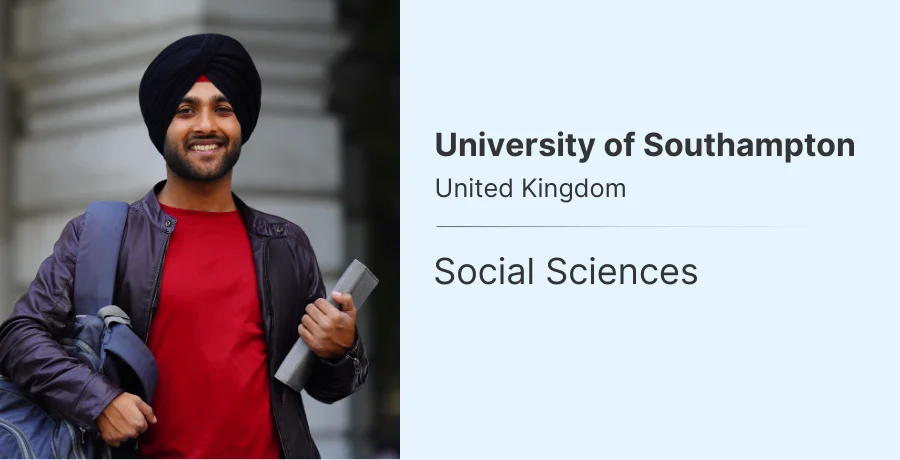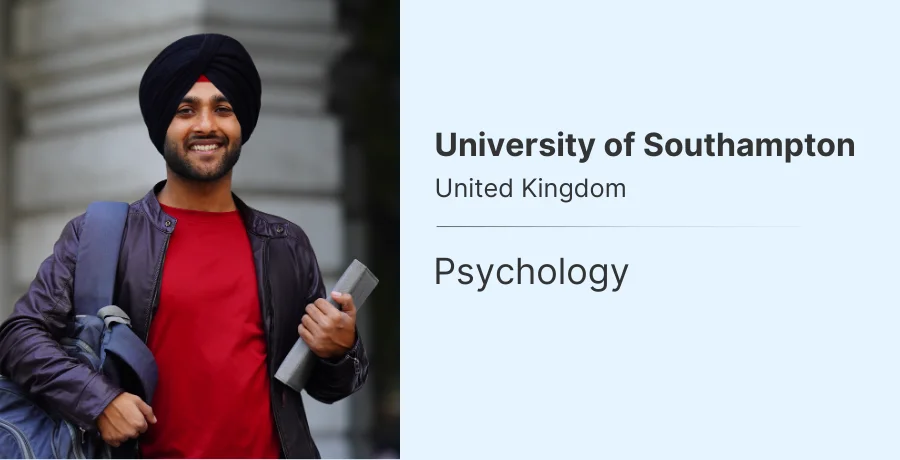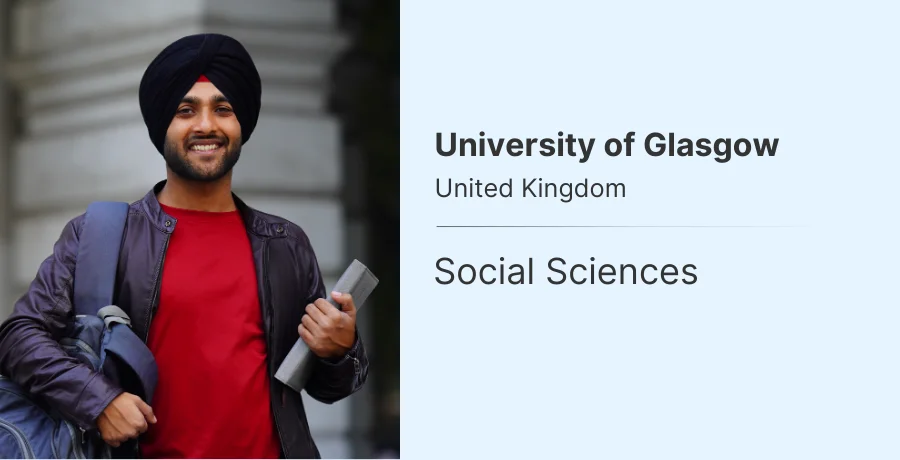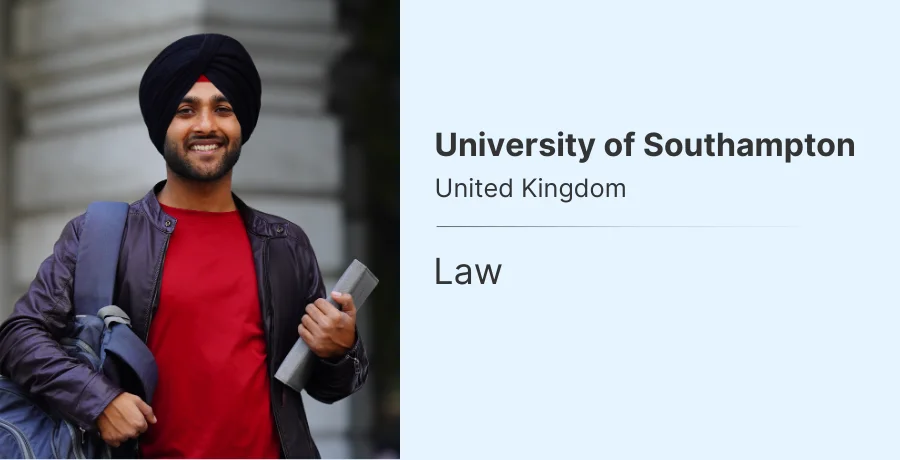Are you passionate about technology and eager to pursue a career in computer science and Information technology?
Then studying in the UK will be the best option. This blog post explores the highlights of Computer Science and Information Technology courses in the UK, the types of courses available, the top universities offering them, the admission process, costs, scholarships, career prospects, and frequently asked questions.
Highlights of Computer Science and Information Technology Course in the UK
- Over 5,00,000 students have enrolled in STEM Courses.
- The UK's tech industry is a significant contributor to economic growth, with a projected 15% sector expansion.
- Strong University-industry ties for beneficial internships, placements, and Job opportunities.
- Accreditation enhances graduates' credibility and employability in the competitive tech job market.
- Continuous curriculum updates to incorporate the latest advancements in technology.
- Integrating theoretical knowledge with practical applications, covering emerging technologies like blockchain and machine learning.
Why Study Computer Science & Information Technology in the UK
- UK universities promote computer science courses heavily so that you can research and work with the world's leading IT companies.
- The UK universities ensure that the computer science curriculum covers database designing, network infrastructure development, computer hardware development, and innovative concepts like the Internet of Things (IoT).
- Computer science graduates can benefit from the UK's world-leading research reputation and its well-developed IT infrastructure.
- A computer science degree at a UK university will provide you with the core skills needed to shape businesses and organizations.
- British universities offer various computer science specializations in artificial intelligence, robotics, networking, visual computing, cyber security, electronics, and engineering.
Types of Courses in Computer Science and Information Technology In the UK
1. Computer Science:
- Covers fundamental principles of computation, algorithms, data structures, and software development.
- Explores theoretical concepts and practical applications, providing a broad foundation for various tech roles.
2. Software Engineering:
- Focuses on the systematic design, development, testing, and maintenance of software applications.
- Emphasizes software project management, quality assurance, and collaboration in team-based environments.
3. Cybersecurity:
- Addresses the protection of digital systems, networks, and data from cyber threats.
- Covers topics such as cryptography, network security, ethical hacking, and incident response.
4. Data Science:
- Involves the extraction of insights and knowledge from large volumes of structured and unstructured data.
- Includes statistical analysis, machine learning, data visualization, and database management skills.
5. Artificial Intelligence:
- Explores the development of intelligent systems that can perform tasks that typically require human intelligence.
- Topics include machine learning, natural language processing, robotics, and computer vision.
Top Popular Master's Courses in UK
1. MSc in Computer Science
- Offers a comprehensive study of computer science principles, preparing students for various roles in software development, research, and academia.
2. MSc in Software Engineering
- Focuses on advanced software development practices, project management, and quality assurance, preparing graduates for leadership roles in software engineering.
3. MSc in Cybersecurity
- Provides specialized knowledge in cybersecurity, including threat detection, risk management, and ethical hacking.
4. MSc in Data Science
- Equips students with advanced data analysis, machine learning, and data visualization skills, preparing them for roles in data-driven decision-making.
5. MSc in Artificial Intelligence
- Explores advanced concepts in AI, including machine learning algorithms, natural language processing, robotics, and computer vision, preparing graduates for roles in AI research and development.
List of Universities Offering Computer Science and Information Technology
- University of Cambridge - Computer Science
- Imperial College London - Information Technology Management for Business
- University of Oxford - Software Engineering
- University College London (UCL) - Data Science
- University of Edinburgh - Artificial Intelligence
Admission Process to Computer Science & Information Technology
- Eligibility Criteria - To be eligible for these programs, students typically need a relevant undergraduate degree, strong academic performance, and proficiency in English.
- Documents Required -Common documents include academic transcripts, letters of recommendation, a personal statement, and proof of English proficiency.
- Proficiency Test -Most universities require a standardized English language test like IELTS or TOEFL.
- Visa Process -Once admitted, students must apply for a Tier 4 student visa, providing evidence of acceptance, financial stability, and English proficiency.
Cost of Computer Science and Information Technology Courses in the UK
Tuition Fees:
For international students, average tuition fees range from £15,000 to £25,000 per year.
Cost of Living:
Estimated at £12,000 to £15,000 per year, covering accommodation, food, transport, and other expenses.
Scholarships for Computer Science and Information Technology Students in the UK
Securing financial assistance for your Computer Science and Information Technology studies in the UK is possible through various scholarships:
1. Chevening Scholarships:
- Full tuition coverage, living expenses, and allowances.
- For outstanding individuals with leadership potential.
2. Commonwealth Scholarships:
- Cover tuition, travel, and living costs.
- Open to citizens of Commonwealth countries committed to contributing to their home countries.
3. British Council GREAT Scholarships:
- Financial support for international students, including those in tech fields.
- Criteria vary by university and country.
4. University-Specific Scholarships:
- Some of the scholarships that you can apply for while pursuing an MSc in Computer Science in the UK are the Computer Science Scholarship (Royal Holloway), Essex Global Partner Scholarship (University of Essex), Progression scholarships (University Of Surrey), etc.
- Coverage includes tuition, living expenses, or both.
5. Tech Industry Scholarships:
- Support from leading tech companies or industry associations.
- Includes financial assistance and potential internships or mentorship.
Career Opportunities in Computer Science and Information Technology in the UK
1. Software Development:
- Graduates can embark on software development careers, contributing to software application design, coding, testing, and maintenance. Opportunities abound in both established tech firms and innovative startups.
2. Data Science and Analytics:
- The increasing reliance on data-driven decision-making creates a demand for professionals skilled in data science. Graduates can work as data scientists, analysts, or engineers, extracting valuable insights from vast datasets.
3. Cybersecurity Specialist:
- With the growing threat of cyber-attacks, there is a rising demand for cybersecurity experts. Graduates can work as cybersecurity analysts, ethical hackers, or security consultants, ensuring the digital safety of organizations.
4. Artificial Intelligence and Machine Learning:
- Careers in AI and machine learning involve developing intelligent systems and algorithms. Graduates can work on cutting-edge projects in natural language processing, computer vision, and robotics.
5. IT Management and Consultancy:
- Those inclined towards leadership roles can pursue IT management or consultancy careers. This involves overseeing technology infrastructure, strategic planning, and advising organizations on optimizing their IT resources.
FAQs:
1. Q: Can I work part-time while studying Computer Science or Information Technology in the UK?
International students in the UK are generally allowed to work part-time during term and full-time during holidays. This can be a great way to gain work experience and supplement living expenses.
2. Q: What are the typical eligibility criteria for scholarships in the UK?
Eligibility criteria for scholarships vary, but they often include factors such as academic performance, leadership potential, and sometimes financial need. It's essential to review the specific requirements of each scholarship program.
3. Q: Are there part-time study options for Master's programs in Computer Science?
Many universities in the UK offer part-time study options for Master's programs, allowing students to balance their academic pursuits with other commitments.
4. Q: What is the average cost of living for international students pursuing Computer Science or IT courses in the UK?
International students' average cost of living in the UK is estimated to be between £12,000 to £15,000 per year. This includes accommodation, food, transport, and other miscellaneous expenses.
5. Q: How do I apply for a Tier 4 student visa for studying in the UK?
After securing admission to a UK university, you can apply for a Tier 4 student visa. The process involves evidence of acceptance, financial stability, and proof of English proficiency. It's crucial to adhere to the visa application requirements and deadlines.












